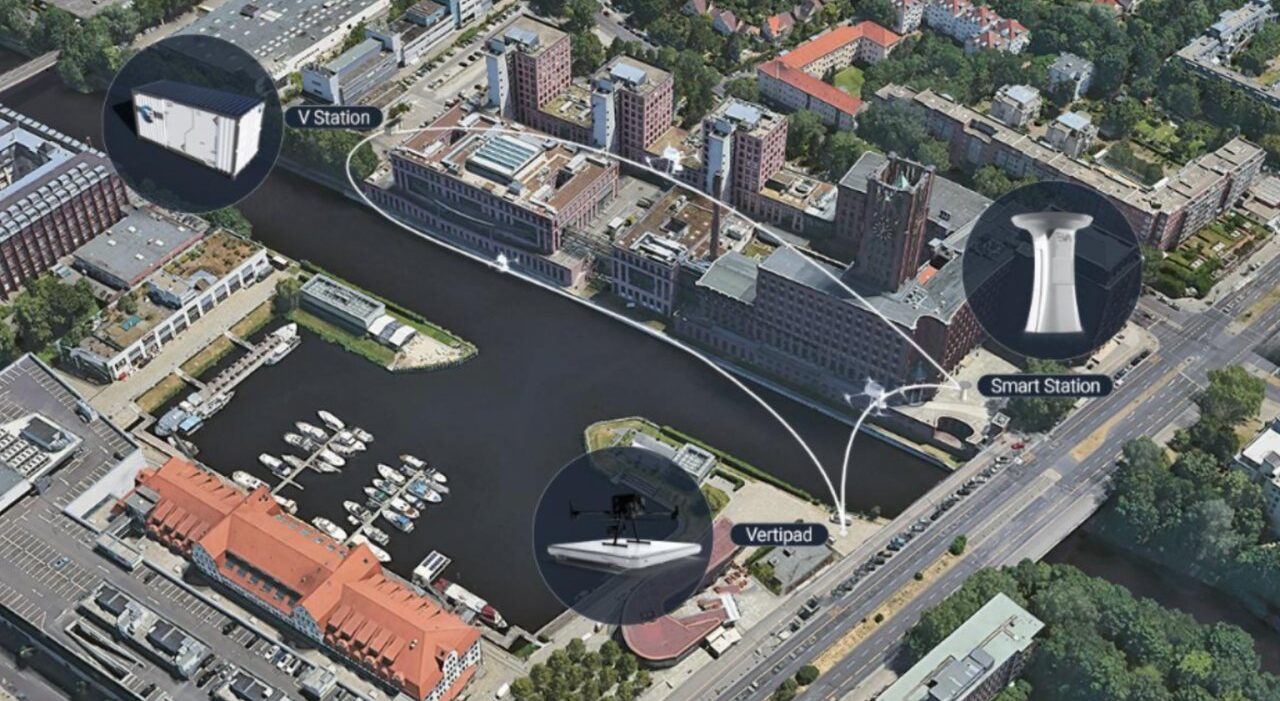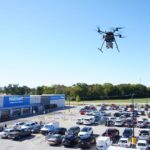EVA, in collaboration with Staex GmbH, have developed a Web3-operated drone delivery corridor project called NEXA. The scheme comprises a cutting-edge transfer station M3 based at Ullsteinhaus and two Vertiports M1 located within the premises of the commercial center Tempelhofer Hafen, facilitating autonomous deliveries between these stations – in what the two firms hope will become the world’s first Web3-operated drone delivery corridor.
The long-term aim is to leverage mobile 5G network and blockchain technology in operating drones, revolutionizing the way drones are deployed. Such Web3 technologies enhance low-latency efficiency, a critical aspect of autonomous mobile operations.
EVA’s ‘mesh’ of charging and control facilities is drone agnostic, meaning that the company has the unique ability to integrate drones from any manufacturer in its infrastructure. Its proprietary USRA Operating System is the first of its kind to be able to connect and operate all unmanned autonomous systems (drones, robots, cars) in real-time as well as integrate applications generated by outside developers.
Staex GmBH has strong technological expertise in providing security for ground station operators. Its private P2P mesh network software layer, patented military-grade end-to-end encryption and certificate-based trust allow for secure and reliable communication between ground stations. In addition, its innovative devices can identify management Web3 features designed to enhance both efficiency and security of the project’s IT infrastructure.
Through this groundbreaking partnership, both EVA and Staex GmBH can offer a breakthrough solution which offers the highest level of transport capability, thereby creating a platform that constantly rethinks, adapts and reconnects the status quo in mobility, logistics and connectivity.
According to Statista, revenue in the Germany drones market amounts to €123.10m in 2023. The market is expected to grow annually by a CAGR of 1.47% for the next five years, from 2023-2028. Germany also enjoys the highest market share for drones in Europe, accounting for 18.2% of the market. However, approximately 90% of the drones in Germany are private while only 10% are used for commercial purposes, indicating a huge market potential for commercial drone operations.
“The technological advancements that we have built at EVA deliver high precision landing for drones even in harsh weather conditions. This helps in reducing the need for extensive human involvement in drone operations while improving overall safety. It is only apt that such a technology is demonstrated first in Berlin, where our company is headquartered. This way we can show to the citizens of Berlin that drone delivery is not the thing of the future, but it is very much a thing of the present,” Sid Venkat, Head of BD, EVA, said.
In the future, both firms may explore opportunities in blockchain technology that may address use cases such as:
● Tokenization of drone stations that will solve the station ownership dilemma,
● Drone insurance use cases that will significantly simplify the data infrastructure,
● Lightweight cool showcases such as ordering a pizza with crypto (this use case has been mostly requested)
Project NEXA is expected to be launched during September 2023 in Berlin.
EVA and STAEX will showcase how the low altitude economy and blockchain are two sides of the same coin. Implementing EVA end to end drone logistics solutions comes with the highest level of security on the market.




